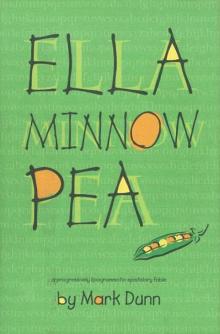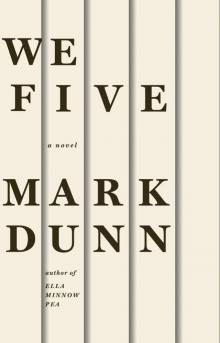American Decameron Read online
Page 7
It was the kind of proof necessary to convince a doubting world. For man was never meant to fly. That was axiomatic. It was an impossibility that ranked with equal weight alongside the concept of terrestrial immortality and the absurdity of amity between the Russians and the Japanese.
It had taken only five years, and numerous flights both from the lofty dunes of Kill Devil Hills and the flat, grassy fields of Huffman Prairie in the brothers’ home state of Ohio for the world to come to a settled acknowledgement of their accomplishment. In the first decade of the twentieth century, faith and belief were largely reserved for the ethereal, and not for those who would puncture the ether with their corporeal flying machines.
Late that night at the inn in Manteo, after the men had virtually commandeered the telegraph office of the United States Weather Bureau to wire their own breathless-cum-deathless accounts back to New York, the newsmen reiterated their apologies to their string-man colleague over a second round of beers. The evening adjourned with Mr. Hoster’s pronouncement that “history was made today, and we are its witnesses.”
Bruce Salley shook his head in rebuttal. “History was made in all actuality on December 17, 1903. The Wright Brothers flew through the air while we were all looking in the opposite direction. Let us not congratulate ourselves too effusively for having simply and belatedly turned our heads.”
1909
MORBIFIC IN NEW YORK
The cottage looks less like a cottage and more like a railroad depot. This was the first thought that entered Ruth’s head.
The structure’s situation upon the small island wasn’t quite as Ruth had presumed either. She had imagined the small bungalow to be nestled in a sylvan grove, perhaps adjoined by a motley cutting garden. Instead, the house sat exposed and unadorned next to a church, only a few hundred yards from the East River. Its previous occupant, the superintendent of nurses, may have enjoyed the view from its riverside windows, but was perhaps otherwise ambivalent about giving it up to its notorious current resident.
The bungalow’s present occupant had lived there for over two years. She lived alone, as was required, but was permitted to keep a small mongrel dog for compensatory companionship.
Ruth had wondered at first if the woman would even permit an interview. Ruth’s letter seeking permission to write about her for one of the magazines for which Ruth worked had been answered, but not in the way that she expected. The request had provoked a long and vituperative attack upon all those who had conspired to imprison this woman on the island, and an equally impassioned defense against all the charges that had been hurled at her.
Ruth smoothed down a rumpled pleat in her skirt and patted a rimple in her salmon-colored shirtwaist. She straightened her modestly trimmed hat, knowing that the riot of flowers and feathers that characterized the millinery of most of her contemporaries would certainly have elicited contempt from the object of Ruth’s visit—a poor Irish immigrant given to simple tastes in accordance with her diminished means.
Ruth St. Croix knocked and then waited. She waited for so long, in fact, that she began to wonder if the woman she had come to see—the woman whom she had taken extraordinary measures to interview—had, with the arrival of that mutually appointed hour, changed her mind. Had Ruth come all the way over from Manhattan Island this breezy summer day, the East River nearly claiming her hat when a gust pinched it (hat pins and all), simply to be mischievously jilted?
No further dark thoughts were allowed to enter Ruth’s head, for the door to the cottage finally opened and the woman sought by Ruth St. Croix, intrepid female reporter of the stouthearted Nellie Bly stripe, stood before her, engaging Ruth with weary blue eyes that looked her visitor up and down in naked assessment.
“Welcome to North Brother Island,” said the woman, the bounce and lilt of her native brogue having been modified by years of service to non-Gaelic American families. “How do you like me wee cottage prison? Will you add bars to the windows in your description of it? Will you tell your readers that I eat watery gruel to tug at their heartstrings? I give you permission to color me circumstances here as miserably as you may wish. Do come in. Mind the stair.”
The woman stepped back and held the door open as if daring Ruth to enter. Ruth accepted the invitation and stepped inside. The front room was dark, curtains drawn over most of its windows. Yet even in shadow, the woman appeared to be comfortably dressed in accordance with her situation, simply but tastefully and crisply arrayed, and smelling to Ruth as if her frock had been freshly laundered.
“Please sit down,” said Ruth’s circumstantial hostess. “I do get the pleasure of a guest now and again, but they generally don’t enter me cell.” With a conspiratorial whisper: “They like to come and peer and gawk at me through the windows—like I’m some monkey in a cage. Do you see me the same way, Miss St. Croix? Do you find me to be akin to some animal in a zoo?”
“Well, of course not,” said Ruth, glancing about the little sitting room. Though sparsely furnished, the space had a warmth and snugness to it that put Ruth at some ease.
After offering her visitor a seat upon the room’s small sofa, the woman sat down in an armchair with a large and elaborately stitched lace antimacassar draped over the top and a profusion of doilies imbricating the arms. She had not put her blond hair up, and so it cascaded negligently over her shoulders, framing a youthful face, though Ruth knew the woman to be past forty. Perhaps her plumpness enhanced the semblance of youth. “So what do you want to know? I suppose you already know the reason they’ve put me on this island of ghosts.”
Ruth produced her stenographer’s pad and pencil from her bag. “Why do you call North Brother’s Island an ‘island of ghosts’?”
“Because of all of them what died here not five years ago. Do you not remember the General Slocum fire?”
Ruth nodded. “Yet I had forgotten that it was near here that the steamship went down.”
“Abide upon this wretched island for more than a few hours and you’ll hear the voices, too. Them shrill, panicked cries of the littlest babbies—you’ll find these the hardest to bear. They laid most of the bodies right upon the bank not so very far from this cottage. ’Tis the worst sort of cruelty to put a person like me upon a ghost island like this. I do not deserve to be haunted so.”
“There are those who say that you are fully deserving of such a fate.”
The woman glared at her guest.
Ruth had been forewarned of her interviewee’s famous temper. Lighter observations than Ruth’s had been known to throw her into a raving frenzy; still, Ruth had chosen words that were deliberately, daringly provocative. “Did you come to hear my own side of things and the very good reasons for my release,” said the woman, with obvious restraint, “or are you no better than all them others—the ones what bollocks and abuses me for sport?”
Ruth clasped her hands together and leaned forward upon her chair. “No, Miss Mallon, that certainly isn’t the purpose of my visit. But there are questions that I feel I must ask. Your lawsuit against the city which demands your immediate release under habeas corpus proceedings—is there to be a ruling soon?”
“Very soon says Mr. O’Neill.”
“Mr. O’Neill is your lawyer?”
Nodding: “But even if I lose, I intend to throw myself upon the mercy of me captors. I’ll agree to everything they ask of me, I will.”
“Meaning that, to begin with, you will no longer seek employment as a cook. That you will no longer infect others with the typhoid bacillus.”
The woman known the world over by the unkind moniker Typhoid Mary lowered her eyes in contemplative silence. Then she raised them to impale Ruth with a contemptuous glower. “I have never been sick with typhoid—not a single day in me entire life.”
“But you have been tested and, still and all, the typhoid germ does live inside you. It resides within your gall bladder, does it not? Was it not the case that you could remain free forever if you would but submit to an operation that would ha
ve removed the diseased organ?”
“An operation that most assuredly would have killed me. And I am not ready to die. Miss St. Croix, have you come here to plead for my release through your magazine? For this was what I understood you to mean from your letter. Or were you letting on for personal benefit—that you should meet me and then go and write about me just as all them others have written? If this be the case, then I must ask you to leave my home immediately, but I should like to strike you first for having wasted me time.” Mary grinned. “On second thought: join me for lunch. A cold salad, I think. For it is me cold collations, they say, which appear to be the deadliest.”
Checking her desire to rise and flee, Ruth collected herself and then calmly replied, “May I know why it is, Miss Mallon, that even though you don’t believe yourself to be a silent carrier of typhoid fever, you’ve never engaged in those sanitary practices that could only have absolved you from all suspicion?”
“You mean why did I never wash me hands after attending to my business in the w.c.?”
“Frankly, madam, yes.”
Mary thought for a moment while chewing upon her bottom lip. Then she shrugged and said, “Because it is not in my nature, I suppose. And for that reason I never took up the habit.”
“I see.”
“Of course, I suppose that it shouldn’t have been such a terrible inconvenience for me to have done it.”
“No, I should think not.”
The two women regarded one another for a brief, silent moment. Then Mary said, “Miss St. Croix, I have no friends.”
Ruth nodded. “Yes, I have heard this.”
“I am a pariah.”
“With only a dog for company.”
Mary nodded. “I have a dog who doesn’t care if I wash me hands or not.”
“Yes.”
Then suddenly, in spite of Ruth St. Croix’s assiduous efforts to meet with Typhoid Mary and in spite of that previous desire on Ruth’s part, given her humanitarian heart, to do good by this poor, lonely, hygienically uneducated woman, there remained nothing else to be asked or said. And so Ruth St. Croix stood, preparatory to taking her leave.
“Well,” said Ruth in a vocal haw.
“Quite well,” responded Typhoid Mary with an ironic smile.
As Ruth placed her hand upon the doorknob, regretful that she had not worn gloves that morning, a chill came over the formerly intrepid reporter and she felt herself in that moment surrounded by all the ghosts who resided on North Brother Island in the middle of the East River. But these were not the ghosts of the General Slocum tragedy. They were specters born of an Irish immigrant’s ignorance of germs. And Ruth knew that once the woman was eventually released, she would in no time give sufficient cause for re-incarceration, hand-washing not being a component in her squalid nature.
The winds were even stronger during Ruth’s return trip to Manhattan Island. Despite being affixed to her hair with multiple hatpins, Ruth’s hat—an understatement of peacock plumage—was rudely seized from her head and sent flying in a gust that nearly pushed the rest of her over the gunwales and into the roiling brown river.
Chastened by her experience, Ruth St. Croix did not that year attempt another story that discomfited her (and for which she had a good chance of losing another hat—even though it be expendably under-trimmed). Nor did she set out to write another story whose subject so easily earned her disfavor. Ruth, who quickly abandoned any thought of writing about Miss Mallon, fought hard against feelings that depreciated the ignorant Irish, while making the customary boasts to her editor (and to the editors of the other enterprising progressive journals which employed her) of her general liberal nature.
And like a twentieth-century Lady Macbeth, Ruth St. Croix began to wash her hands several times a day to the point of crazed obsession. The soap she used was made of lye and the laving with such was quite punishing to her hands. By the end of the year, great patches of Ruth’s epidermis had been abraded away. She was forced to wear large, paw-like protective mitts and to be laughed at, especially by the Irish, who, by their general nature, had a healthy sense of humor.
1910
PORCINE IN NORTH CAROLINA
The boy had never known a permanent home. At the death of his father when he was only seven, he was taken away from his impoverished mother, separated from his six brothers and sisters, and delivered to his mother’s younger sister and her husband, a dry goods dealer in Wilmington. When the sister wandered off late one night in her bed robe seeking Jesus and was found the next morning floating face-down in a lake, the boy was removed to the custody of a spinster great aunt in Raleigh, who ultimately could not abide his energy and rambunctious nature and so was regretfully obliged to give him up to a paternal uncle who was a cooper, and his wife. Here in Winston the boy was to be made an apprentice when he reached the age of twelve, but due to the incapacitation of the husband, the victim of concussion by the injurious aim of a sprung stave, the boy stayed only long enough to learn the difference between a rundlet and a tierce, a hogshead and a firkin, and then he was off again to live in Durham with a different uncle, who was a phenomenon of sorts—a college-educated blacksmith—and his wife—a transplanted New England Bluestocking dressmaker—and their son, who was close to the boy’s age and would have been a boon companion had he not been sickly and nearly always bedridden and eventually dead.
With the death of the son, Master Eugene Ramp, as the boy had come properly to be called, prepared himself to be sent off yet again, shuffled away to some other reluctant North Carolinian relative or village man wanting an apprentice. Yet, to Eugene’s surprise, the decision was made by the grieving uncle and his grieving wife that it was not Eugene’s fault that his first cousin was of a sickly constitution and could not do a better job of surviving childhood, so Eugene was kept. And though he wasn’t at first any sort of replacement for the dead boy, young Eugene, now eleven years of age, was treated as somewhat of a son and loved as best as his uncle and aunt were able, except that the aunt was intolerant of energetic and high-spirited boys, and frequently punished him for his unbridled youthful ebullience.
“You will come in and sit down to dinner when I call you!” commanded Aunt Helen at the back door. “Send all of your colored playmates home. They know they aren’t allowed in our backyard after sundown.”
As Eugene was nodding goodbye to his dusky playfellows, his aunt cautioned him against coming inside without having first washed his face and hands at the well pump. This he promptly did, though his blouse was equally drenched and the aunt put to even greater ill humor. Then nephew and aunt sat and waited until the uncle came in from the adjoining blacksmith’s shop and made his apologies for his tardiness and washed up, and then the three said grace with a mumbled amen from the areligious blacksmith and something even less than that on the part of Eugene, for he at the young age of eleven had concluded that God had long abandoned him and that he would return the favor.
There was a roast chicken on the table, and potatoes and freshly baked bread and some of the peas that had been put up last year in surfeit. Eugene was ravenous from having run and played after coming home from school and from having given away his lunch to the poor, hungry boy who was his desk companion at the schoolhouse, and from the fact that his Aunt Helen didn’t believe in afternoon snacks. And so Eugene ate quickly and voraciously with both hands, reaching and grasping and shoveling food into a willing, gobbling mouth. At first the scene didn’t register with the aunt, who was caught up in her private concerns over the fact that her blacksmith husband was seeing fewer and fewer customers. Was it because the carriage horses were being fast replaced by automobiles? What did the future hold for men like her artisan husband in this increasingly mechanized world? And what of Eugene when it came time for him to become a striker and work alongside his uncle?
With the thought of Eugene, the aunt turned to see her nephew stuffing a large wad of buttered bread into his mouth and was revolted.
“Young man, I ha
ve asked you repeatedly to respect this table and eat as an adult and not as a pig in a sty. Yet you refuse to listen.”
“I’m sorry,” said a cowed Eugene, his mouth still filled with bread, the butter basting his lips with an oily sheen. Could his aunt not see that his unruly attack upon his supper was testament to his appreciation of her fine cooking?
“And I do not intend to ask you again to display manners that my own dead son showed even in his sleep. You will suspend eating and you will go to your room.”
The uncle, who nearly always took the side of his nephew (at least privately), for he knew that it was hard being an orphan (for Eugene’s mother had died while he was being sent along from one relative to the next) and felt that some degree of latitude should be given, petitioned his wife with a look that bespoke a need for compassion and leniency. But the look and the implied request did not move her.
Eugene sat upon his bed, surrounded by residual evidence of the other boy who had once occupied this room. Gregory’s books were still there and his hand-drawn pictures remained tacked to the walls (for Eugene’s cousin Gregory was a gifted artist), and there were rocks and pinecones and other trophies of an exploratory boyhood. Eugene, who was frisky and exuberant by nature, now sat very still and tried to hear what his aunt was saying to his uncle. But he could glean only two words for certain: “pig nose.”
This made no sense to Eugene whatsoever, although an hour later the words made quite a bit of sense, for Uncle Oswald came into the room carrying an artificial pig snout that he had fashioned in his shop, made of papier mâché and fixed to a string that allowed the nose to be put on top of a human nose as if for a masquerade. “Eugene, I’ve made this pig nose, which your aunt wishes you to wear for a week. I made it a month ago when you attacked the Sunday meal with reckless abandon in the presence of Reverend Gardner and his wife, and I was successful then in talking your aunt out of your having to wear it. Alas, I have lost the battle this time around and you must now put it on. While I would not portray your behavior at the table, my boy, as that of a greedy, snorting pig, it is your aunt who governs within these walls and she who has final say in all manners of domestic discipline. Put on the nose. She’ll want to see it on you before you lay yourself down to sleep.”

 American Decameron
American Decameron Ella Minnow Pea
Ella Minnow Pea We Five
We Five IBID: A Life
IBID: A Life The Calamitous Adventures of Rodney and Wayne, Cosmic Repairboys: The Age Altertron
The Calamitous Adventures of Rodney and Wayne, Cosmic Repairboys: The Age Altertron The Age Altertron
The Age Altertron IBID
IBID